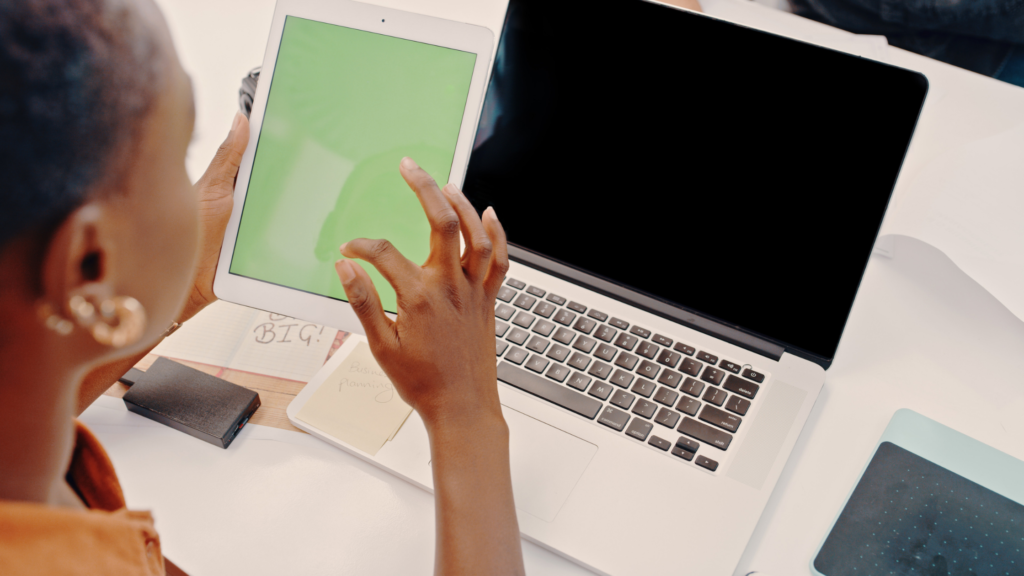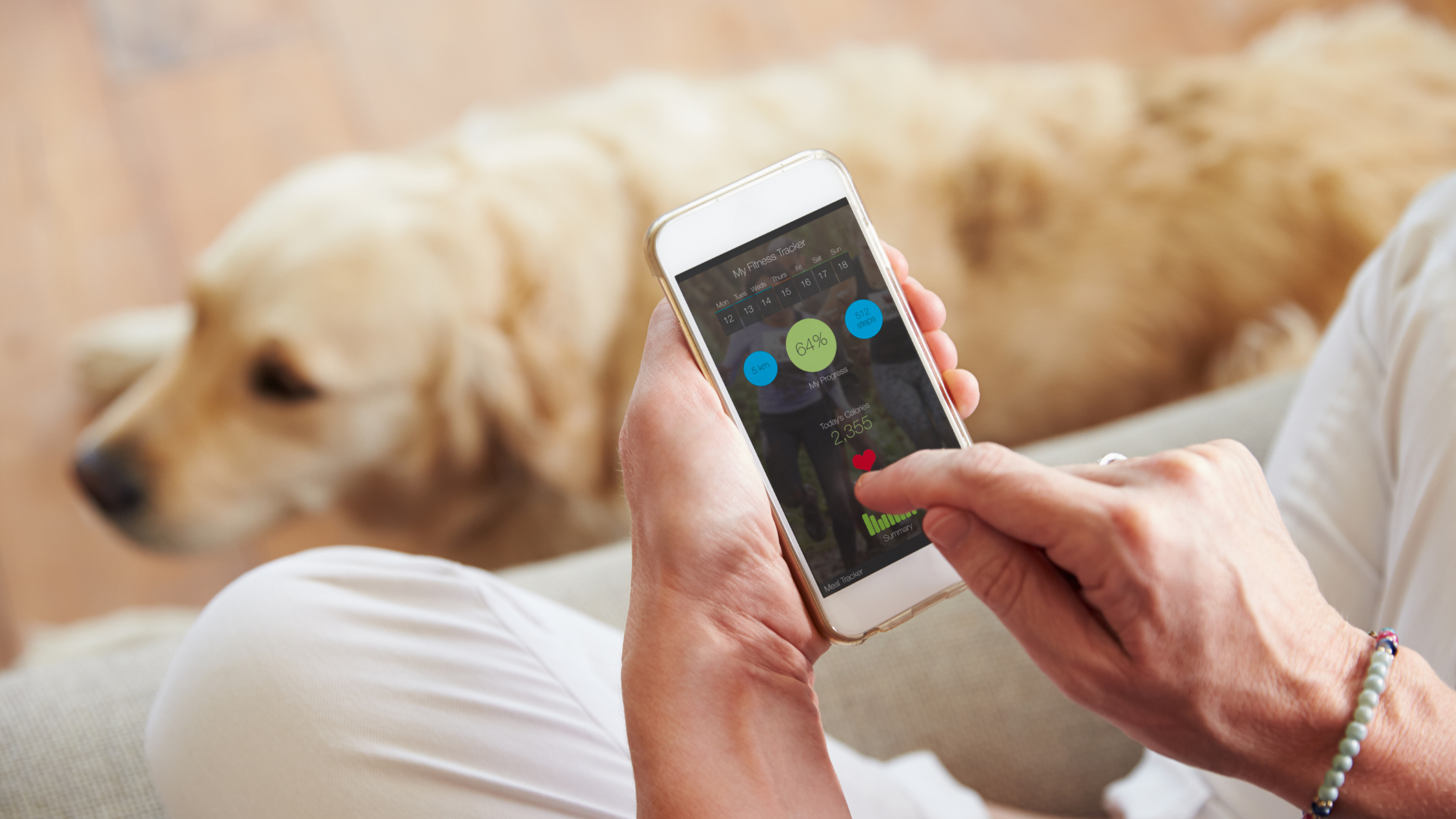Have you ever gone with a family member or friend to see a new doctor, and giving their medical history takes up most of the appointment? If you are lucky, they brought a sheet of paper listing medications and the other doctors they see.
And you think to yourself: That will never be me. If you are hoping to live forever and never age, then you are probably wrong (unless you are a vampire, in which case – thanks for reading my blog! Tell other vampires to check it out too).
On the other hand, if you keep a personal health record, you are right – that will never be you. A personal health record can make it much faster and easier to share information with healthcare providers. It is also safer since you are less likely to forget something important.

What is a ‘personal health record’?
A personal health record is basically what it sounds like: a collection of information about your health that you are in charge of. Most people rely on their provider to keep health records. Health information kept by providers, hospitals, clinics, and pharmacies are usually stored in electronic medical records (EMRs).
What makes the personal health record different is that you are gathering your medical information, keeping it in the record, and making sure it stays updated. To be clear, this can be done on paper and does not have to be electronic. My father-in-law keeps a notebook with his medications, names and phone numbers of doctors, and insurance information.
But paper is not guaranteed to be secure. What if he loses that notebook and someone else now has his information? What if he does not have it with him when he needs it? And what if (and this happened when I took him to the ER once) the information changes and he forgets to update it?


Why do you need a personal health record?
There are many reasons why a personal health record is something you will want and need.
Reason #1: You will be asked for your health information by someone at some point.
Whenever you need to access care for the first time, providers will ask for your health information. It is routine for a new provider, new urgent care, new pharmacy, or new hospital to ask for this information as you check-in. A personal health record means you have the answers ready.
Reason #2: You can make sure the records are accurate.
Healthcare providers are human beings, and even with electronic medical records they can still make mistakes. When you take charge by keeping a personal health record, you can make sure the records are accurate. You can note the dates you had certain vaccines, or what does you take with your medications. You can take part in making sure your care is safer by providing the correct information.
A personal health record also helps you to be more accurate rather than relying on your memory. Especially if you are in a crisis, your memory may not be reliable.
Reason #3: Your personal health record can speak for you in a crisis.
If you have an emergency having a personal health record can make it easier to get important information to the people trying to help you. During a crisis you may or may not have someone around who knows you. Keeping a personal health record means you can share allergies to medications, that you have a pacemaker, and other issues that could be the difference between life and death.

Reason #4: You can pull together records from different providers.
Most of us routinely see several different providers throughout the year. For myself the list includes my primary care provider, my gynecologist, and my dentist. They are all in separate practices, so there is no health record that joins them all together.
A personal health record is a good place to cover all of the providers you see. It can help you keep all of their information in one place.
Reason #5: You can track your progress over time.
If you have health goals, like lowering your cholesterol or keeping your blood pressure in a certain range, a personal health record can help you track progress. Some personal health records even allow you to easily upload information from smart watches and electronic blood pressure cuffs.

Where can you get a personal health record?
There are three main options for places to get a personal health record:
Option 1: Your health insurance company or provider.
This is the best place to start because insurance companies and healthcare providers must follow HIPAA laws – laws meant to protect your privacy. Most health insurance companies offer personal health records online or through an app. They also already have your medical information on file because they have been paying for it.
My insurance company’s mobile app lists all of my medications based on what I filled at the pharmacy, all of the doctors I have seen, and all of the treatments I received. The only thing not included is notes from my various doctors. This is where a personal health record through your provider can have more complete information.

Epic – a health information system used by many hospitals and provider offices – has an app called MyChart that is a personal health record. This app contains my lab results, notes from my providers, reminders about appointments, medications, and allergies. The only problem is not all of my providers use Epic, only some of them do. I only get information in the MyChart app for the ones who do.
Option 2: Commercially available personal health record apps.
There are companies that offer web-based personal health records, like WebMD’s Health Manager. Just keep in mind they are not required to follow privacy laws so be careful, so read their privacy statement very closely.
Apple’s ‘Health’ app was designed in a very smart way: It helps you to collect information about your health day-to-day. But if you tap on ‘Browse’ and scroll to the bottom, you will see an option to add your Health Records. This lets you connect with a number of the major health systems in your area, as well as lab companies like Quest Diagnostics.
This is a good option since it combines your provider’s health records with health information you keep yourself.
Option 3: Create a folder on your computer or a storage drive.
There is always the option to store your health records on your own computer or a password protected storage drive. Just make sure you know how to have that information handy in a crisis.

What goes into a personal health record?
There is a lot that can go into a personal health record. We will break the information into two parts – what you should definitely include and what is nice to include. The definitely include list has the information EMTs and Emergency Room staff may need if you are ever in a crisis. The nice to include list is helpful for your primary care provider, specialists, and others you may see during routine appointments.
Definitely include:
- Allergies and sensitivities – to foods, drugs, plants, animals, and materials (ex: latex)
- Emergency contacts and their contact information
- Names and contact information for all of your providers including your dentist and specialists like a therapist, cardiologist, or gynecologist
- Medications you take and what dose, including anything over the counter like vitamins or herbal supplements.
- Illnesses, surgeries, or implants you have had (ex: pacemaker, insulin pump)
- Any medical devices you use – for example, CPAP machines, portable oxygen, or walkers
- Health insurance information
- Dates of any hospitalizations and what they were for
- Advanced directives, living wills, medical powers of attorney, and consent forms
Nice to include:
- Blood pressure
- Height and weight
- Blood glucose readings if you are diabetic
- Results of routine screenings, like mammograms and colonoscopies
- Important family health history – if a parent developed any conditions at a young age (ex: dementia under age 60, breast cancer), it is important to list those
- Results from recent provider visits
- Vaccines and dates received
- Important test results
- Eye and dental records
- Anything else that may be important about your health, such as your exercise routine.

It may seem daunting to get all of this information in one place. Here are three simple steps to get started.
1: Gather any documents at home related to your health.
2: Go into online patient portals from your providers and download documents.
3: For anything you cannot find online, request copies of your records from your providers as well as labs.
Note that some labs, like Quest Diagnostics, also have portals with results processed by any Quest lab. I can see labs from my annual check-up as well as COVID-19 test results in the same place.

Key Takeaways:
A personal health record is a collection of information about your health that you maintain. There are many reasons to keep a personal health record, such as including being able to provide important information in an emergency.
Whether you get a personal health record from your insurance company, or save one to a hard drive, there is a lot of information you can choose to include. The most important thing is that you have critical information available where and when you need it. Your health is too important to rely on someone else to keep the records.






I use both MyChart and the Health app on my iPhone to track my personal health record. I like the combination because MyChart keeps my past appointment notes, allergies, and lab results etc., but the Health app uses my Apple Watch to track my daily steps, my heart rate and how often I exercise. For instance, my heart rate runs pretty high, my weekly average is 50bmp to 150bpm, which I didn’t realize until after I started using my watch. I now have my watch tell me if my heart rate goes above 100bpm during periods of inactivity, which helps me track my anxiety.
I found this post extremely informative and eye opening to the importance of keeping a personal health record. Personally, I do not have a substantial one set up. In my phone I have certain people labeled as emergency contacts, but nothing about my allergies, medications, or insurance. I will make it a point to start keeping a detailed record of my medical history. I now see that keeping a personal health record can be a helpful and potentially lifesaving tool.
That is great! You will certainly not regret it when you need this information.
I use an organized folder and also a flash dive for mine and have encountered problems when going in for an appointment where they didn’t have previous medical information. I think it should also be done for people living with the elderly as often times they forget as well and it could be life saving to have such information handy. Thank you for this really helpful article, I will definitely be adding more to my folder based on your advice!
This is such a great idea! I already track a lot of my health information using the health app on my iPhone, and my family just recently got MyChart for a recent Covid test. I probably should do a better job with this though, and it seems like there are so many different apps and programs that are available! I think this should be widely adopted because it would help healthcare professionals access charts faster and easier. In my anatomy and physiology class we learned about this lady who usually had very low blood pressure, and she went into the doctor because she felt like something was wrong and they took her blood pressure and it was normal (which is high for her, but they didn’t know that) and so they sent her home, but she ended up having complications because of how high her blood pressure was compared to her normal. Having something like this, a personal health log, would allow doctors to check what her usual blood pressure is and prevent something like this from happening.
My main takeaway from this article is that keeping a personal health record cannot only save you time at a new doctor’s office but help keep you healthy and safe. A personal health record is, “a collection of information about your health that you are in charge of.” I have also taken that you should definitely add allergies and emergency contacts into your personal health record and also add medications you are taking along with your health insurance information.
I think this is a really good idea. This personal health record is useful for everyone like patients and doctors too. Before I suddenly couldn’t breathe in the hospital after I got surgery. Doctors came to me and asked me what is wrong. However, I could not speak to the doctors since my brain did not work. I was in a panic and I thought I would die. Like in my experience, this record would be helpful for everyone. And I already have some apps on my phone, so I can record some information that I really have to record for in case.